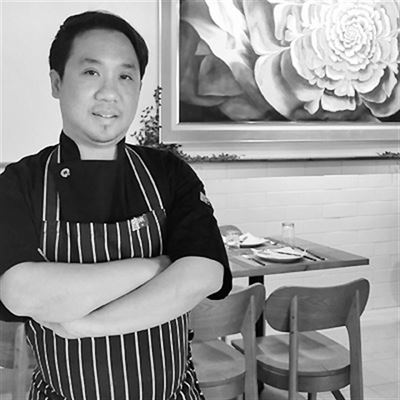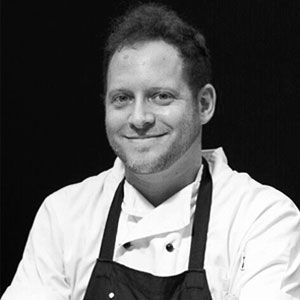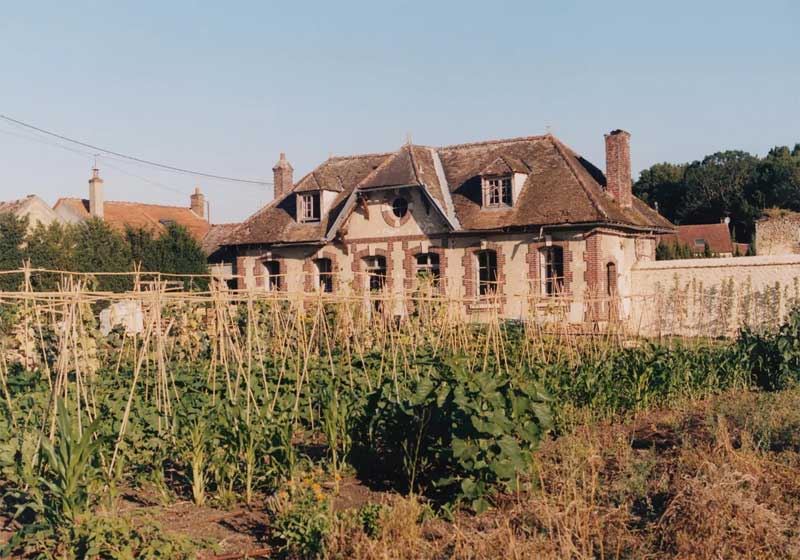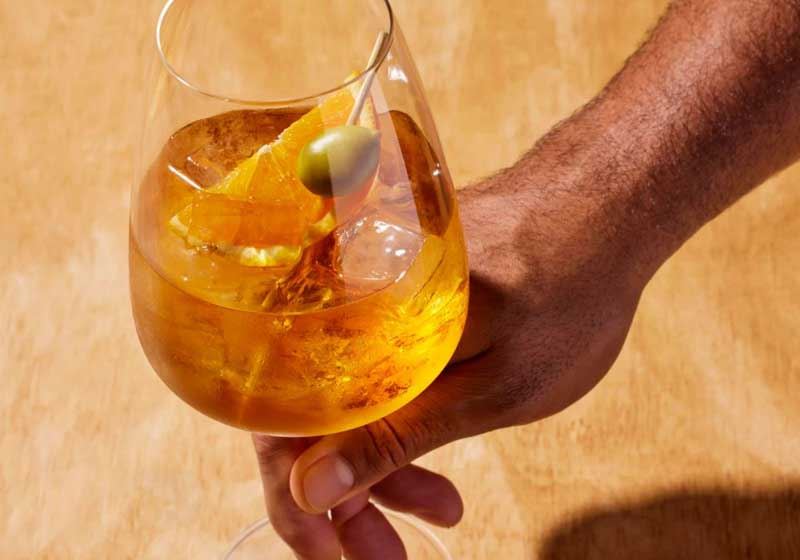Chris Fan

Born:
Guangzhou, China.
History:
I started as a kitchen hand at Italian Village under Dockside Group in 2008, the same year I arrived in Australia. I studied at Northern Beaches TAFE for a Certificate III in Commercial Cookery, diploma and advance diploma of hospitality management. Later on, I obtained an Associate Degree of Business Management from the International College of Management Sydney (ICMS) and a Bachelor’s Degree of Business Administration majoring in hospitality management from Macquarie University.
At the very beginning, I had no idea what the Chef life was going to be; I just wanted to find a part-time job in the kitchen after my school hours and earn some money for living costs while obtaining some work experience. So, after I graduated from college, I could find a stable job to help me continue living in Australia.
However, after I met my mentor, previous Head Chef Dean Floody. He had an influence on me from all perspectives about cooking. He was the one who made me decide to stay in this industry, even though it’s high-pressure work, stressful during service and there’s a high demand for physical strength due to the long working hours.
Dean was tough and strict, he really brought me into the culinary world by demonstration, ie: how he worked in the kitchen, how to improve techniques and gain knowledge through reading, combined with real-life experiences, and how to push the restaurant forward by being consistent in food quality.
Except for the practical execution applied in the kitchen, I spent all my time reading different cookbooks from different great Chefs around the globe. Once, I didn’t need to work and was studying for my assignments, then I would watch different cooking competitions day and night. (First, English is not my mother tongue, so, the more time I watched the competitions, the easier it was for me to understand the way to work in the kitchen and learn from the Chef). During those five years time, I would like to describe myself as cook-a-holic.
After I had graduated from university, I decided to go back to China to work at some of the great restaurants to gain more experience. After another five and half years working for the Four Seasons Hotel in Guangzhou at the top floor fine-dining seafood restaurant, I came back with my wife and it was time to step into another stage of my life – to open a restaurant (Alder Inn) and serve the food with my own spin on it.
Have you always wanted to be a Chef?
No. After working and cooking in the kitchen for around 5 years, I began to feel tired and I wanted to try something new.
At the time, it was the season for hospitality students to gain more real-life experience in a hotel, through the industry training arranged by my college for nine months. So, I took the chance to work in a new place. I was lucky enough to pass the interview at Hilton Sydney, and I became a food and beverage attendant in the event operations.
Date back to that nine months’ time, based on the feedback from managers and supervisors, my performance was exceptional, I gained employee of the month in the second months of my hotel life, and received compliments from normal guests, cooperate guests, different managers and directors, and even in my industry training report, the comments from the managers were phenomenal.
After finishing nine months of industry training, I had around a one-month holiday before I went back to China. I took around two weeks’ time to travel within Australia. I wanted to think about my career development for the future since I had experienced front of house and back of house.
After recalling all my memories from the back of house and front of house, I decided that I preferred to stay in the kitchen to cook, and I would like to spend a career in the kitchen. There is no doubt that work in the kitchen is hot, tiring, high pressure, high physical demand and, pretty much, not much family life, holiday, and weekends. However, I just couldn’t walk away from the kitchen easily. I really enjoyed the feeling of being pushed, the mix and matching to compose a dish, and I really enjoy the feeling of chasing perfection in the same dish. All these sorts of sensations just make me even more fascinated with a life in the kitchen.
How would you define your style?
Modern Australian with Asian influence.
What is your feature flavour these days?
This depends on the season. In Spring, I like florals, light but sweet, grassy, earthy and not too intense on spice, for example: cinnamon, cloves, star anise and cardamom. During the Summer, I like fruity, zesty and citrusy flavours along with a sense of a light breeze swept in from the ocean, for example: delicate white fish, more acidity than other seasons and chilli.
From early Autumn onward, I like to insert spices into my cooking gradually until the end of Winter. I bring in more rosemary, thyme and sage, so my menu has a hearty, woody taste, yet there will still be mandarin, apple and other citrus flavours lingering until the temperature really drops. When it does, I use more cumin, cinnamon, clove, coriander seed, cardamom, juniper berry and a kind of oaky, full-bodied red wine in my cooking. I aim to generate a warm, cozy sensation for my diners during Winter.
Obsessive-compulsive about?
Flavour balance in every single dish, yet it’s still fun to eat and it must reflect the current season. I like a dish that I made to not only please my customers, but equally, the dish must please our line cook and myself. Because cooking the same dish every single day, in my opinion, the Chef should still have a sense of excitement. The quality of the dish should improve from time to time and the dish itself should evolve. The final taste of a dish must reflect my Asian influence and the ingredients need to be in harmony.
Your greatest culinary influence:
My mentor, previous Head Chef Dean Floody and Executive Chef Michel James. I worked for them since I arrived in Australia in 2008. They not only showed me how to cook from the technique and flavour pairing perspective, but they helped me to develop my cooking style. Dean was the first person to guide me, so I could soak up the knowledge about cooking techniques, kitchen life, food pairing and other food knowledge. My first cookbook was a bundle package from Thomas Keller: The French Laundry and Bouchon. The first literature I read about kitchen life was from Kitchen Confidential by Anthony Bourdain. The first cookbook that surprised me with its detailed descriptions of food from a scientific perspective was The Fat Duck Cookbook by Heston Blumenthal. Bocuse’s Regional French Cooking by Paul Bocuse was the first cookbook that inspired me to cook with local ingredients.
What do you love about this business?
It gives me a platform to forge my knowledge, skills and imagination, yet I’m able to have more experience in the frontline to understand more about food, how people perceive the flavour combinations from the food I cook, as well as how to use these different flavours to arouse sensations that make people happy. More importantly, I would like to explore the reasons why people change their eating preferences.
An ingredient you can’t live without?
Sea salt.
Most ‘eyebrow-raising’ menu item?
I don’t think I have any eyebrow-raising menu item on my menu. I buy all the ingredients from the local market, sometimes from the supermarket. If people really think I have an eyebrow-raising menu item, I guess, just because I work a bit harder to make sure every piece of ingredient is cooked the way it should to showcase the best of it.
Signature dish:
I am still searching for my signature dish in my career as a Chef. Since I am still learning and researching and growing, either on the flavour pairing and cooking techniques and seasoning perspective. It would be too early and too quick for me to define my signature dish.











